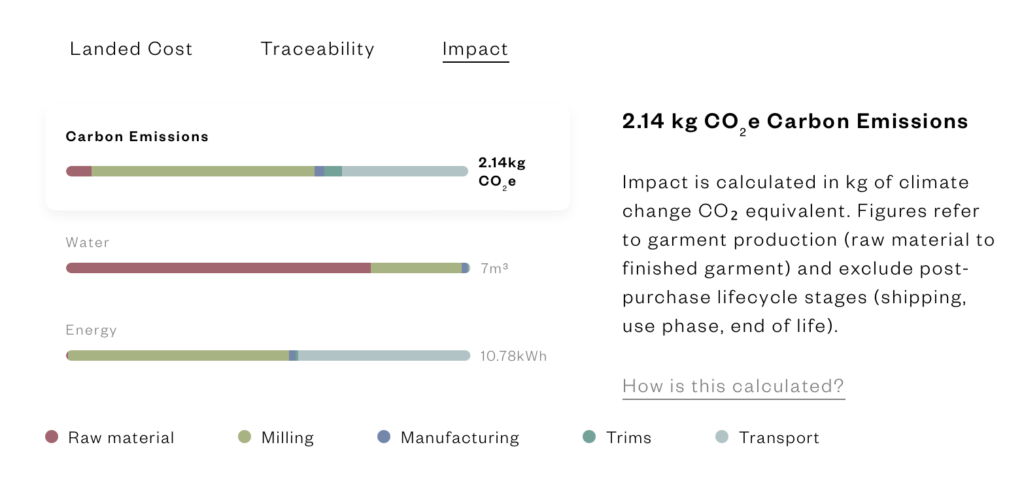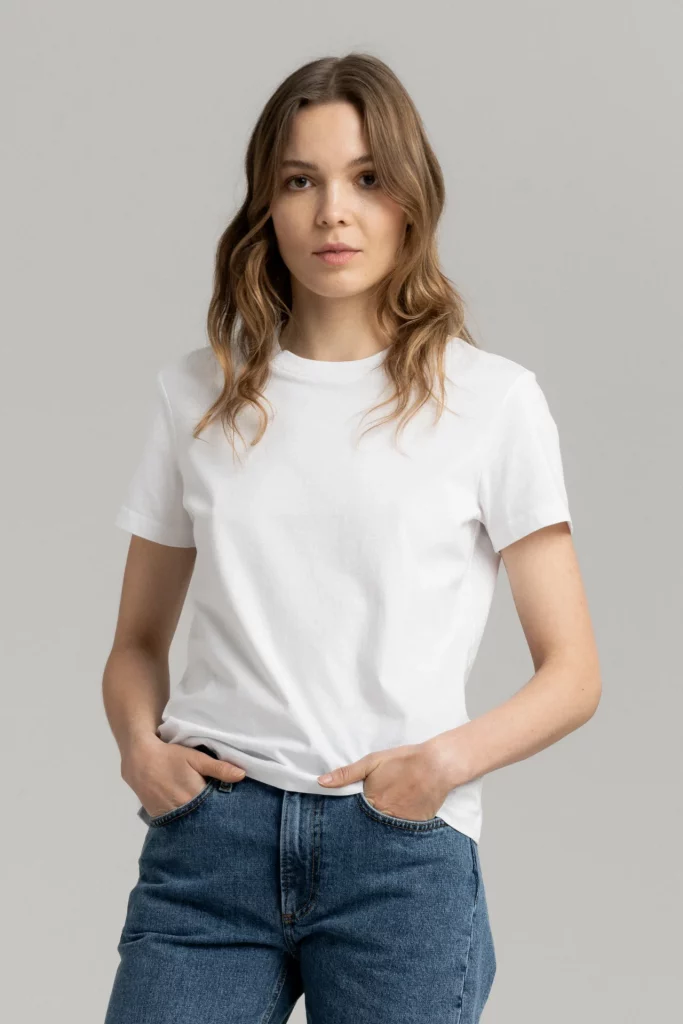Is "Impact" The Next Big Trend in Sustainable Fashion?
Bianca Foley
In this era of more eco-conscious consumerism, a silent but seismic shift is transforming the way brands do business. It’s the rise of environmental impact transparency – the notion that every purchase comes with an environmental price tag. From the fashion industry to food, electronics, and beyond, an increasing number of brands are opening up about their environmental impact, providing consumers with vital information to make conscientious choices.
The Drive Behind Transparency
What’s fueling this trend? It’s a fusion of consumer demand, corporate responsibility, and regulatory pressure. Consumers are no longer content with simply owning products; they want to know how those products affect the planet. They’re asking questions and expecting answers. The result? Brands are feeling the heat and recognizing that to earn and retain consumer loyalty, they need to be transparent about their environmental impact.
Corporate responsibility plays a significant role in this shift. Brands, more than ever, are acknowledging their role as stewards of the environment. They’re not just offering products; they’re serving a broader purpose. By showcasing their commitment to sustainability, they demonstrate that they’re taking tangible steps towards reducing their ecological footprint.
As environmental awareness continues to grow, the fashion industry is under pressure to become more transparent and accountable for its impact. In this transformative era of fashion, Swedish apparel brand ASKET is taking a groundbreaking step by introducing the “Impact Receipt,” shedding light on the environmental costs associated with each purchase. This innovative approach aims to redefine the relationship between consumers and clothing, emphasizing the importance of considering the planet’s well-being alongside personal expenses.
The Impact Receipt: A New Kind of Receipt
ASKET introduced the Impact Receipt, a pioneering concept in the fashion industry. Alongside the traditional monetary receipt, ASKET now provides customers with a comprehensive breakdown of the carbon emissions (CO2e), water usage, and energy consumption associated with every garment they purchase. This revolutionary move seeks to encourage consumers to understand the broader environmental implications of their buying choices, oving beyond a mere transaction to create a more meaningful connection to their clothing.
ASKET’s Role in Environmental Accountability
ASKET has long been recognized for its commitment to addressing the fashion industry’s darker side, highlighting areas that many would prefer to keep hidden. With the launch of the Impact Receipt, the brand is tackling the sector’s growing environmental footprint, which is projected to increase by 50% by 2030, despite increased awareness of its far-reaching consequences. August Bard Bringéus, co-founder of ASKET, emphasizes the disconnect between shopping habits and their environmental impact, leading to an accumulating environmental debt. By revealing the genuine cost of garments, ASKET hopes to prompt consumers to reconsider their consumption habits and, in doing so, reduce their environmental footprint.
A Dual Receipt System
From the date of the announcement, ASKET has implemented a dual-receipt system for every customer’s purchase. Alongside the traditional transactional receipt, an Impact Receipt is issued, offering a detailed overview of the environmental cost of the order. This breakdown includes CO2e emissions, water and energy consumption associated with each garment, as well as the impact of packaging and shipping choices. Additionally, this data is available on each product’s page, allowing customers to access full supply chain traceability and cost breakdowns. ASKET’s approach serves to illuminate the resources expended in the garment’s production process, offering a more holistic understanding of their true value and the environmental toll they entail.
Transparency Through Partnership
ASKET has partnered with Vaayu Tech to facilitate the calculation of lifecycle impact assessments. The Impact Receipt is founded on ASKET’s extensive garment traceability, accounting for all stages of garment creation, from raw materials to manufacturing and transportation. All ASKET garments now display their cradle-to-gate carbon emissions, energy usage, and water consumption in four tiers: Raw Materials, Milling, Manufacturing, Transports, and Trims. This method provides a comprehensive view of the clothing’s environmental impact, which is contextualised based on the water scarcity in production locations.
The fashion industry is undergoing a transformation, and ASKET’s Impact Receipt is at the forefront of this movement towards transparency and environmental accountability. By providing consumers with an accurate understanding of the ecological costs associated with each garment, ASKET is empowering them to make more informed choices. In this new era of sustainable fashion, brands like ASKET are setting a precedent for a more conscious, environmentally responsible industry. As consumers become increasingly conscious of their consumption-based footprint, it is clear that the fashion world is shifting from transactional to meaningful, and environmental transparency is the next big trend in sustainable fashion.
Share This Story
Related Posts

Did ChatGPT Play a Role in Fueling California’s Wildfires?
Did ChatGPT Play a Role in Fuelling California’s Wildfires? Alice Hartwell Credit: Unsplash Early 2025 headlines were dominated by the devastating wildfires that swept through

Is Outlet Shopping Actually Sustainable? Let’s Discuss
Is Outlet Shopping Actually Sustainable? Bianca Foley Outlet shopping and discount designer stores have long been the ultimate fashion treasure hunt—scoring past-season gems at a

Sustainable Bakeries to Visit in the UK
(Image credit: Mix Interiors) Sustainable Bakeries to Visit in the UK There’s nothing more comforting than indulging in freshly baked goods. But what if you

What’s Good in December: Fun, Ethical Things To Do In London
What’s Good In December: Fun, Ethical Events In London In Partnership with In Good Company December brings a magical mix of festive cheer and meaningful


